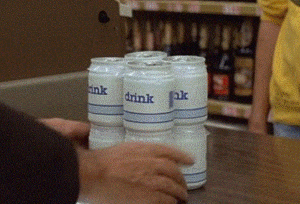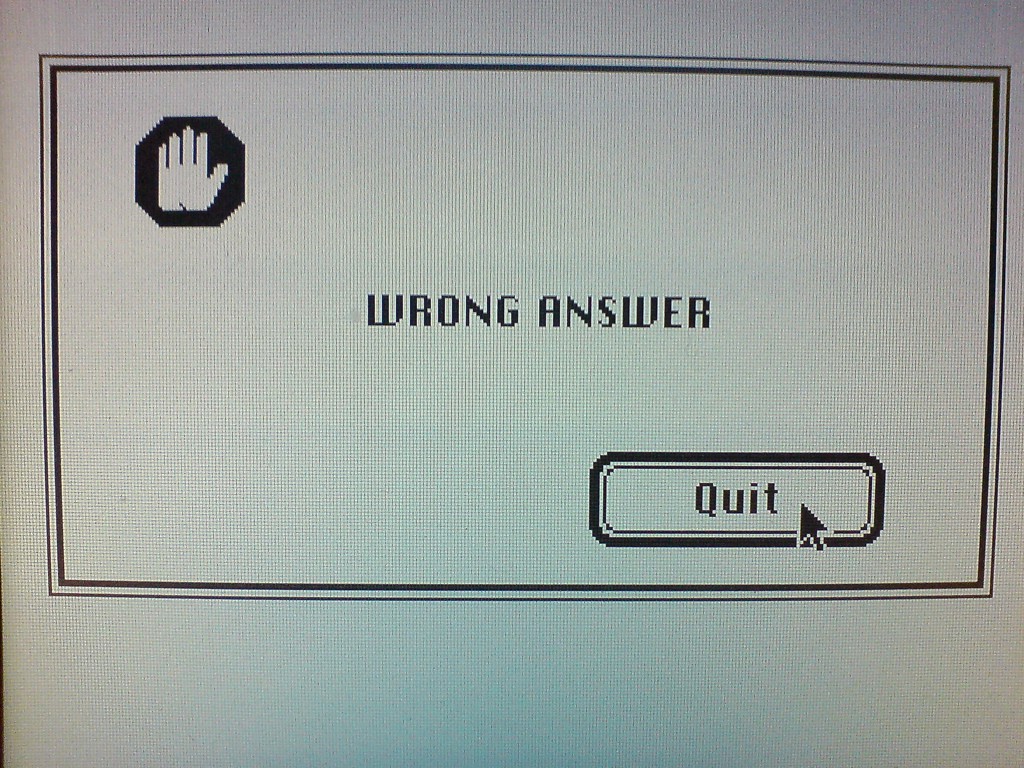New York City, May 11, 2016

★★★★★ Dappled sun lay on the forecourt and dappled shadow on the sidewalk. Out in full sun, the warmth gathered strength. Still the season was pacing itself, not burning ahead to summer. The chess hustlers on Union Square had game after game going, and behind them sat a table of outdoor card players in stiff poses of relaxation, intensely noncommittal. “It’s great out. Get outside,” a man on Sixth Avenue said, wrapping up a phone call. Two children in pink helmets scootered westward on a cross street, holding in side-by-side formation. The choppy shadows of the serifs on the lettering over the door of the Cluett Building made it almost impossible to make out the text proper.
If You Trend It, They Will Click
Facebook trending… on Facebook trending pic.twitter.com/ix6oLgvw6y
— Talya Minsberg (@tminsberg) May 9, 2016
Selected quotations from Facebook’s leaked guidelines for its trending module, illustrated.
“I. ASSUME EVERY TOPIC IN PENDING IS A REAL-WORLD EVENT, UNTIL PROVEN OTHERWISE.”
“II. ASSUME THE TOPIC FEED’S QUALITY WILL IMPROVE AFTER THE TOPIC IS ACCEPTED.”
“Hashtags are verbatim phrases that trend. Altering them would be changing the organic composition of the trend. Hashtags are different than topics, which are inherently more subjective because they’ve been generated by the topic tagger (which has its own limitations).”
“Write a custom topic name for breaking or planned news events that are expected to persist for several days.”
“OPTIMIZE FOR THE SQUARE CROP IN THE NULL STATE DISPLAY”
https://giphy.com/gifs/rSW9303l0kAko
“8. Crime — Topics related to alleged, convicted, exonerated crimes, criminal trials, appeals, death penalty. _Acts of war/terrorism should not be filed to crime._”
“Lebron James is in pending before the start of the Cavaliers game, but he hasn’t done anything yet to qualify as a real-world event. We want to put him on a short timer, to make sure we re-review after the real-world event has begun.”
“Having more trends has proven to increase the CTR (click through rate) and participation rate.”
Yumi Zouma, "Short Truth"
Whatever tomorrow brings at least we have this to remind us that summer is coming. Enjoy.
Boring People Fight
The idea of a feud between the proponents of anecdotal reportage and the number-crunching whiz kids who have replaced them in the election-following public’s esteem is so delightful that it almost made me want to listen to a podcast, but my life is still not that sad yet, so I’m glad there’s a write-up about it. For the record I am inclined to side with the stats geeks on this one, but I also think the fact that so much of our political “journalism” focuses solely on WHO WILL WIN is a leading reason this country is the epic shithole dystopia of broken dreams and hopelessness that it is for almost everyone that the press only pays attention to during horse race season, so fuck ’em both. I also have thoughts about all those reporters who got mad about getting called out for being part of the White House steno pool but that is enough from me on media for the week.
Everything Is Selling

“I’m a brand, albeit a very small one and in a limited domain. So are most national journalists I know, especially those who cover tech, media, politics and sports. With the help of the social engagement team at The Verge, I use my Twitter account and a brand page on Facebook to promote my own work, and those of colleagues at this website and others owned by our publisher.”
— Everything is gross because of stuff like this, but it’s somehow inexplicable when people follow Bounty Paper Towels on Snapchat or whatever? We’ve all gotten so used to the simultaneous tweets from the happy campers at this company or that who are part of a coordinated effort to sell you on a particular story that we no longer even distinguish between an attempt to push content and an attempt to push product. There’s no longer a difference, really. “Content,” as the great marketers of our era understand, “is content,” and that holds true whether you’re discussing a post about how to argue with your transphobic uncle at your family’s Arbor Day celebration or a quiz that is designed to make you think more positively about a specific brand of cakey goo you smear under your arms to minimize their fetid odors. “The publisher of this website, Vox Media, has an arm that helps companies create engaging content that promotes their brands,” notes Walt Mossberg in the piece, but it’s fairer to say that Vox Media is an arm that helps companies create content that promotes their brands. All successful media companies of this era are. We’re so far along in our acceptance of this idea that acting as if there is something off-putting or untoward about it marks you out as naive or deluded. This is not a shocking revelation or anything, which is why it’s so amusing to see someone act surprised by its logical conclusion. It’s a funny old world, I guess. Anyway, this post was brought to you by whatever product pops up adjacent to it, so I hope you have an improved association with it by virtue of my candor. Now if you’ll excuse me I need to go get my colleagues to tweet this out.
The Experts Have Spoken
by Ben Dolnick

You know that little surge of glee you feel when you read this tweet from Ross Douthat?
The entire commentariat is going to feel a little silly when Marco Rubio wins every Republican primary.
Or when you look back at that golden oldie from Peggy Noonan about the “vibrations” all humming with the news of an imminent Romney landslide?
In 1984, Christopher Cerf and Victor Navasky published a book called The Experts Speak that is basically a five-gallon tank of that particular pleasure. It’s four hundred pages of people being wrong about stuff: military generals in the thirties insisting that Hitler poses no threat; movie executives in the twenties proclaiming talking pictures a fad. There’s no narrative spine, no argument — just five or six spectacularly incorrect quotes per page, covering everything from biology to boxing. The Experts Speak is, to the part of you that delights in identifying the idiocy in others, what Ina Garten cookbooks are to the part of you that delights in lovingly photographed chicken breasts. But it is also, I’ve come to believe, much more than that. Despite its joke-book packaging and the juvenility of its conception, The Experts Speak is among the most psychologically useful books I’ve ever read.
The first thing you discover, when you wade into The Experts Speak, is that wrongness, like food, becomes disturbing when seen in bulk. Fairly quickly, you move on from anonymous British scientists insisting that flying machines are not possible and long-forgotten modeling directors telling Marilyn Monroe that she’d better look for secretarial work and into more troubling territory. Here’s Thomas Edison predicting that radio will be not much more than a novelty. Here’s Einstein declaring nuclear energy unobtainable. History’s roster of morons, you begin to realize, bears a worrisome resemblance to its roster of geniuses. Whomever you happen to rely on for your present stable perch — John Oliver, Elizabeth Kolbert, the Freakonomics guys — you can’t help but begin to feel the chair-legs wobble. Wrongness, now and forever, is an equal-opportunity affliction.
This is the first psychologically useful function of The Experts Speak: it corrodes the notion we, unlike all those billions who had the misfortune of living in the past, might have a handle on the actual truth of things. (This is useful because the truth we think we have a handle on tends to be so unpleasant in the holding.) We are hardwired to our depths to trust our senses, and our senses — particularly the never-ending stream of color commentary provided by our minds — have a distinct miserabilist bias. Imagine, for a second, that climate change turns out to be not such a big deal. I know, I know, but picture it. Maybe, in twenty years, somebody invents a carbon-gobbling machine; maybe some alternative energy source sweeps the globe as thoroughly as cellular service. I’m not saying these things are likely, but that’s the point: the actual course of history has been unlikely, repeatedly. The nineteenth-century experts who feared that Manhattan would soon be three stories deep in horse manure didn’t surround their warnings with wink-emojis. They delivered their forecasts as soberly, and with the same well-reasoned alarm, as Bill McKibben’s latest email blast.
Which isn’t to say we should leave our fridges open and trust the future to sort itself out. But it is to say that we might, with this rich history of inaccuracy in mind, adopt a less helpless relation to our darkest thoughts. Every four years, before a presidential election, I remind myself that, even if my preferred candidate is going to win, there will be points during the campaign in which it will seem as if he or she is in trouble, and I pre-instruct myself not to panic. But then, come August or September, when my preferred candidate actually does find him or herself in trouble, I panic like a cornered chipmunk. We’re good at telling ourselves that we’ll be wrong about things, but we’re not good at remembering that being wrong is — necessarily — a convincing experience.
The Experts Speak, by bludgeoning us with wrongness, chapter after chapter of it (Alfred Nobel thinks that dynamite will result in world peace! Simon & Schuster thinks The Giving Tree is unpublishable!), can act as the reminder of fallibility that our minds so often can’t. And the wrongness train, once boarded, need not stop at global affairs; it can penetrate to the most intimate cores of our lives, those areas about which our minds claim to speak most authoritatively. The Experts Speak can even step in at exactly that point when so many self-help books begin to mumble and trail off: the actual how of it.
Here’s a quick and admittedly sketchy history of psychiatry as I understand it:
Starting with Freud, and continuing for an alarming number of decades afterward, the basic notion was that our thoughts were to be treated essentially as meaningful. OK, so you think your mother never liked you. What do you remember her saying? How did she treat you? How did her mother treat her? Then, starting in the sixties, along came therapies like cognitive behavioral therapy, in which you were encouraged instead to get in the ring and fight with your thoughts. You think your mother never liked you? Never? Really? Doesn’t that sound like a bit of an overgeneralization? Aren’t you putting too much faith in your ability to know the contents of another person’s mind? Now, we treat our thoughts even more disrespectfully, like the blather of the overhead TVs at the airport. Rather than fact check every claim, or scrutinize every contributor for bias, we can, with the assurance that most of what’s being broadcast is sensationalistic garbage, proceed toward our designated gate. Any truly important thoughts will have to come and find us.
It’s in implementing this last approach — which I’m convinced is the one that our minds deserve — that The Experts Speak is so useful. Our minds tailor their coverage shamelessly; they turn up the volume, they declare emergencies, they call in panels of experts. We can’t reason with our minds, but we can, by compiling our own inner editions of The Experts Speak, laugh them into submission. “I will never get into college.” — Me, age 17. “I will never be able to touch my toes.” — Me, age 30. “I will never finish this essay.” — Me, two hours ago.
So you should feel glee when someone retweets Bill Kristol proclaiming that Trump will never make it past Iowa — but not the cheap glee of superiority or schadenfreude. You should feel the deep glee of solidarity, of having found a brother in the business of being fooled. You should bask in the reminder that getting it wrong — and wrong, and wrong again — is the only gateway to getting it finally, blissfully, right.
A Poem By Joshua Corey
by Mark Bibbins, Editor
We Are Well in the Shelter
I elaborate a distance from things
as I live them without loving them.
It’s not ideology, that patchwork,
just the swim of screens
touchless mediations
vivid without vivifying, no give
no resistance. I write this on my phone,
it’s in no sense writing
transparency, falling through
forgetful of feet sweating in their shoes,
where coffee comes from, the voices
tuned to someone else’s ears,
the rocks and pebbles, the clinamen.
Testimony of the sacrificed self:
“happiness is of the world.”
The little brick industrials
behind the facade of shops.
People who live in glass bricks
should shatter their own faces.
Under concrete and rebar secret waters.
The country seen from the air is not the country
men and women walk and wait in
pushing persistent the grasses
make time to break stone, swallow hearts.
Fingers drumming on a fuselage
advising the passengers within.
The Chilean miners, reading
one another’s faces.
Where is the truth of Greeks, fathers and mothers, murderers?
Dark burden let me praise
in the night of Crimea and Syria,
night of infrastructure and the shivering ground.
Leading where voices can’t follow, enduring, frail,
following the water, the money, the trail
of heavy metals, toward the heat and away from light
the crack in things like the hollow tubes
of rescuers.
Joshua Corey’s most recent poetry collection is The Barons (Omnidawn, 2014)
. A new translation of Francis Ponge’s Le parti pris des choses, co-translated with Jean-Luc Garneau, is forthcoming from Kenning as Partisan of Things this year.
Noooooooooooooo

Panic panic! Last night when I couldn’t fall asleep I was searching the home screen of my iPhone for the familiar lever that I could depress to stimulate my rat brain with more dopamine, I could not locate it! The comforting skeuomorphic icon was not where it was supposed to be and so I could not see it. My brain did not process that it had been replaced with something else, just that it was not where it was supposed to be (women have incredible object-location memories, did you know?). It was like reaching to push my glasses up the bridge of my nose only to realize I was wearing contacts (this happens…kind of a lot). I had run out of Twitter pull-and-refreshes like seven swipes ago, and there were no emails coming in so I wanted to go do what one does and look for stimulus in the distant corners of Instagram’s “Explore” feature. Then I saw it — Instagram’s new hot-pink fire tie-dye logo. Oh nice! Change. This is a new thing I’m doing now — trying to accept change. Really glad Instagram has decided to join 2015 and get with the flat-design program. (Where was Kevin Systrom when Airbnb’s new logo came out? Whatever. I’m just saying, it kind of looks like the Airbnb logo un-pretzeled and with a mole.) No seriously I think it looks great and I have no complaints. Nothing brown and old can stay.
Anyway the point is, for a brief second, I was freed from my addiction prison, until I realized, never mind, its walls had just been redecorated. I’m fine now; I’m safe. But also I can’t get past the resemblance to this:

Maria Usbeck, "Jungla Inquieta"
Maria Usbeck’s “Uno De Tus Ojos” is one of the best songs I’ve heard this year — a year which has already proven shockingly strong for music — so I am very very excited for her solo debut Amparo, which is out at the end of the month. Here’s another track. Enjoy.
New York City, May 10, 2016

★★★★ A police officer, on the phone out in the cool bright morning, was recounting the capture and return of a truant student. The warm season was still holding back, not coming on all at once. Jeans were appropriate, and jackets. Thin clouds came on to scatter the light, then thicker ones began to suppress it. Finally the clouds thickened enough to become breakable, and the lowering sun glimmered in the trees above the subway entrance. After dinner, out by the river, drifts of greenish fallen petals lay rotting at the foot of a wire fence. A robin cocked its head and stabbed at the damp ground. The sunset proper was an ugly orangish non-color but the rest of the sky was rich deepening blues and brightening whites. Pale limbs of pale-leafed sycamores stretched out over the empty Classic Playground. People not especially dressed for bicycling rode by on bicycles. The only thing the four-year-old wanted less than to stop running and climbing around was to keep using his legs on the walk back home.
